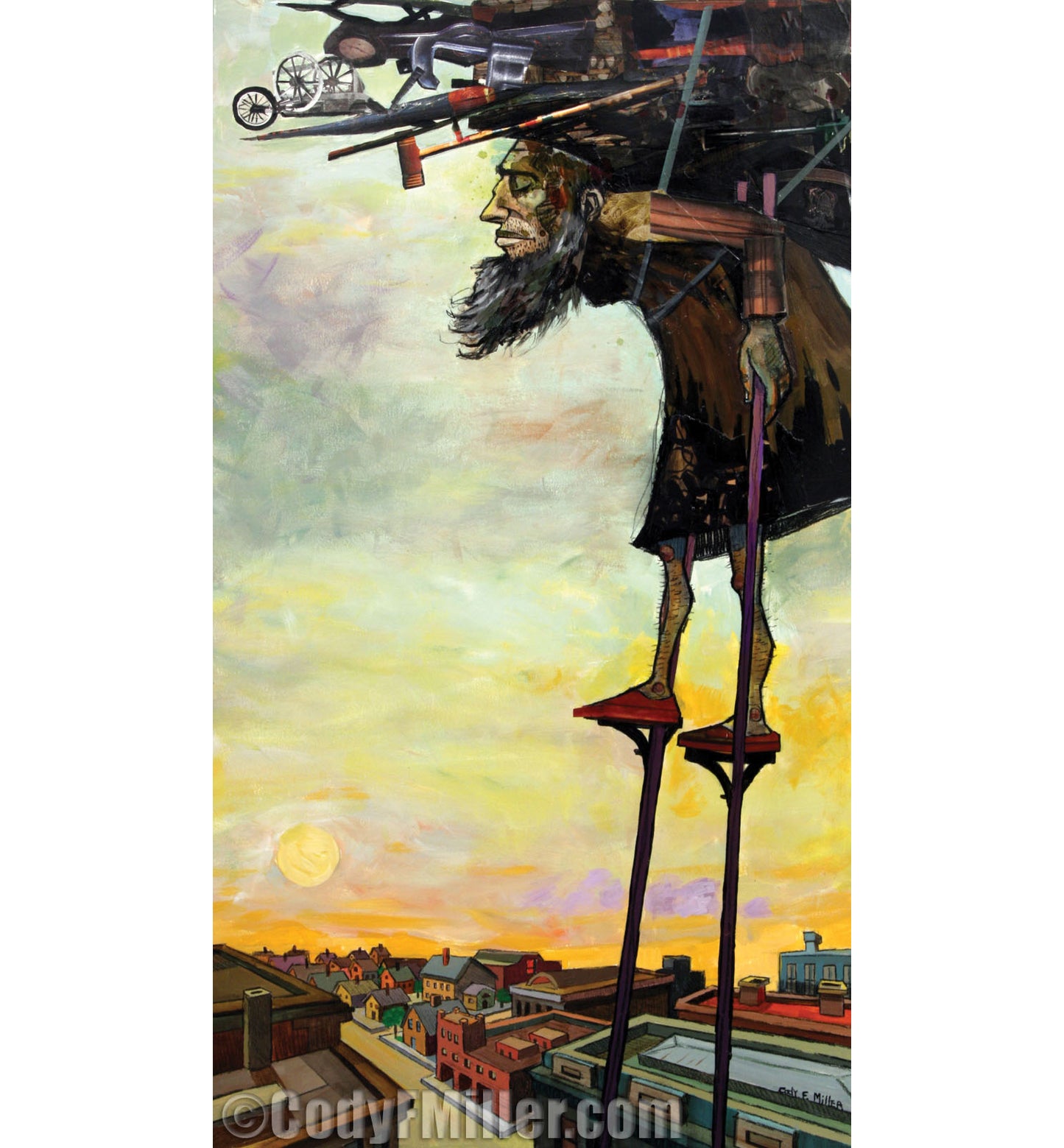Cody F. Miller
Jeremiah
Jeremiah
Couldn't load pickup availability
Limited Edition Reproduction, 11" x 19"
Sometimes when I’m guilty of getting the existential blues, I look at the prophet Jeremiah. He was a young man when God called him to give voice to God’s heart. Honestly he never wanted to be God’s messenger in the first place. Periods of depression visited him often over his 40 years of ministry. Jeremiah 20:9 even shares his complaint about how taxing it is to speak God’s word and yet somehow he can’t stop. It’s as if there is a fire raging inside him that cannot be contained. Jeremiah was one of the saddest prophets because his burden was so heavy. The community and his own relatives continually rejected him and even tried to have him killed. He consistently had to deal with false prophets predicting deliverance from Babylonian captivity, and was labeled a traitor for doing so. His whole life was like swimming upstream with no end in sight.
And yet Jeremiah weaved hope and restoration into his words like no other. He articulated how God was eager to heal their faithlessness ant that through all these circumstances God is creating a new heart in any who listen.
Jeremiah often used symbolic behavior to drive home a point. Once he purchased a plot of land in his hometown, Anathoth. He knew it would be practically worthless after the Babylonians overtook Jerusalem, but by buying the plot, he symbolized his hope for the future restoration of their way of life and specifically God’s promise. “Houses and fields and vineyards shall be possessed again in this land.”
(Jeremiah 32:15)
Stilts make an individual look rather silly. You’re rather vulnerable and awkward when upon stilts. So was the life of Jeremiah. However, they also give you a better view than all those below you—thus, the panoramic message of Jeremiah.


